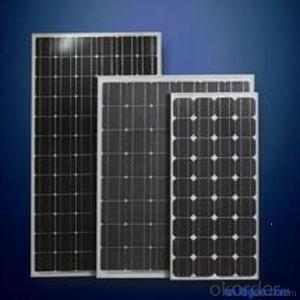Embarking on a journey with your recreational vehicle (RV) is an adventure filled with excitement and freedom. Imagine cruising down open roads, exploring new landscapes, and enjoying the great outdoors. But what powers this modern-day chariot of leisure? Traditionally, RVs have relied on gasoline or diesel engines for propulsion and generators for electricity. However, with the rise of solar energy, there’s a new, eco-friendly way to power your RV. Let’s dive into the world of solar energy for recreational vehicles and see how it can enhance your travel experience.
Why Choose Solar Energy?
Solar energy is a renewable resource that harnesses the power of the sun. It’s clean, abundant, and free once you’ve made the initial investment in solar panels. Here are a few reasons why solar energy is a fantastic choice for RV enthusiasts:
– Environmentally Friendly: By using solar energy, you’re reducing your carbon footprint and contributing to a healthier planet.
– Cost-Effective: While the upfront cost of solar panels can be high, the long-term savings on fuel and electricity are significant.
– Reliable: Solar power systems are low-maintenance and can provide a steady source of energy as long as the sun is shining.
– Versatile: Solar panels can be installed on various parts of your RV, including the roof, sides, or even integrated into the design.
How Solar Energy Works on an RV
The process of harnessing solar energy in an RV is quite straightforward. Solar panels convert sunlight into electricity, which is then stored in batteries for later use. Here’s a simplified breakdown of the process:
1. Solar Panels: These are the primary components that capture sunlight and convert it into direct current (DC) electricity.
2. Charge Controller: This device regulates the voltage and current coming from the solar panels to protect the batteries from overcharging.
3. Batteries: Deep-cycle batteries are used to store the electricity generated by the solar panels.
4. Inverter: Converts the DC electricity from the batteries into alternating current (AC) electricity, which is what most RV appliances and electronics require.
Designing Your Solar System
When designing a solar system for your RV, you’ll need to consider several factors to ensure it meets your energy needs:
– Energy Consumption: Assess your daily energy usage to determine the size of the solar system you’ll need.
– Solar Panel Size and Efficiency: Larger, more efficient panels can generate more power but may also add weight and cost.
– Battery Capacity: Choose batteries with enough capacity to store the energy you’ll need for your trips.
– Portability: If you’re a fan of off-grid adventures, consider portable solar panels that can be set up wherever you park.
Installation Tips
Installing solar panels on your RV can be a DIY project or a professional job, depending on your comfort level and skills. Here are some tips to keep in mind:
– Roof Integrity: Ensure your RV’s roof is strong enough to support the weight of the solar panels.
– Shading: Position your panels to avoid shading from trees, buildings, or even parts of the RV itself.
– Wiring: Proper wiring is crucial for the safety and efficiency of your solar system. If you’re not confident in your electrical skills, consult a professional.
– Regulations: Check local regulations regarding solar installations on vehicles to avoid any legal issues.
Maintenance and Troubleshooting
While solar systems are relatively low-maintenance, there are still some tasks you should perform regularly:
– Cleaning: Keep your solar panels clean to maximize their efficiency. Dust, dirt, and bird droppings can reduce their power output.
– Inspection: Regularly inspect your system for any signs of wear or damage.
– Battery Care: Deep-cycle batteries require specific care to prolong their life. Follow the manufacturer’s guidelines for charging and discharging.
– Troubleshooting: If your system isn’t performing as expected, start by checking the simplest things: connections, shading, and battery health.
Going Off-Grid with Solar Energy
One of the most exciting aspects of using solar energy in your RV is the ability to go off-grid. This means you can park your RV in remote locations without relying on external power sources. Here’s how to make the most of your off-grid experience:
– Plan Your Energy Usage: Be mindful of your energy consumption and prioritize essential appliances and devices.
– Solar-Friendly Appliances: Use energy-efficient appliances that consume less power.
– Backup Power: Have a backup power source, like a portable generator, in case of extended cloudy periods or high energy demand.
– Enjoy Nature: The beauty of off-grid living is the opportunity to immerse yourself in nature. Take the time to explore and appreciate your surroundings.
The Future of Solar Energy in RVs
As technology advances, we can expect solar energy systems to become more efficient, lighter, and more affordable. This will make solar power an even more attractive option for RV owners. Future developments may include:
– Flexible Solar Panels: These can be easily installed and removed, making them ideal for RVs.
– Integrated Solar Roofs: Some RV manufacturers may start incorporating solar panels directly into the vehicle’s design.
– Advanced Battery Technology: Improvements in battery technology will allow for greater storage capacity and longer lifespans.
Conclusion
Solar energy offers a sustainable and practical solution for powering your RV. It not only reduces your environmental impact but also provides a sense of self-sufficiency and independence. Whether you’re a full-time RVer or just enjoy the occasional road trip, investing in a solar power system is a smart choice that pays off in the long run. So, go ahead, soak up that sun, and let solar energy be the driving force behind your next adventure!

